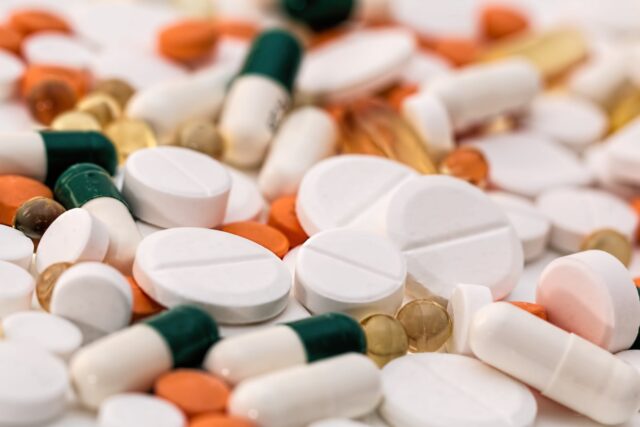
Strengthening immune defenses means acting according to lifestyle (changing diet, preserving sleep, practicing physical activity, etc.). You can also use certain natural products. Vitamins, trace elements, essential oils: Today we show you some tips to immunize and prepare for the arrival of the cold, winter, and the diseases that accompany it.
The immune system refers to the body’s ability to defend itself against threatening substances for its proper functioning or survival. These threats can be microbes like viruses, bacteria, fungi or parasites, cells that have become cancerous, or a foreign body like a splinter.
An immune system is a complex machine. It is made up of various types of white blood cells, which interact with each other and can react very quickly in case of external aggression. In fact, the environment, our home environment, our lifestyle, and our emotions have been shown to influence the quality of our body’s immune response.
An option to have a pure and clean environment for germs and bacteria in our home is the frequent use of antiviral and immunostimulating essential oils.

PaloSanto, tea tree, lemon and eucalyptus essential oils are excellent antivirals and immunostimulants. The use of essential oils is very simple, we will only need an aroma diffuser, in the diffuser we will put a little water and about 3 to 5 drops of essential oil of your choice and we will let the steam aromatize and clean the entire environment of our home. Click here for more information on Palo Santo products.
Palo Santo essential oil is one of the most used during the winter seasons and at the time of having respiratory diseases such as flu, cough, allergies, it is also known for its relaxing properties since its aroma helps to decrease stress and tiredness. Palo Santo is a complete oil, thanks to its high amounts of limonene, a strong antioxidant, antibacterial, and antiseptic agent.
If we do not have a diffuser, what we will do is place a drop of 30% pure essential oil on the chest, temples, nape and nose, in this way we are providing the properties and benefits directly to our body.
Why we don’t get sick in winter seasons

In this context, cold seasons that coincide with a stronger circulation of viruses are generally poorly received by the body. “In terms of food, the unconscious need to accumulate reserves through a more fatty diet can cause intestinal inflammation,” explains Dr. Teulières, general practitioner and immunologist.
At times our immune system or defenses can drop in winter seasons or cold seasons. In some people, the production of serotonin decreases between autumn and winter and causes the appearance of a depressive syndrome, fatigue, and stress. However, this hormone is secreted not only by neurons, but also by cells of the immune system, and more than 95% of serotonin is also produced not by the brain but by the intestine.
It is not uncommon to have sugar cravings, especially at the end of the day and at night, when the days are shorter and the light is reduced. This is completely normal:
the body seeks to compensate for the drop in serotonin in the brain. So boosting your serotonin production is fighting stress and therefore boosting your immune defenses! It is recommended not to suddenly change your diet, favor seasonal products, and do not enrich your diet with sugar or fat under the pretext of feeling winter depression.
It also takes much into account that both alcoholic beverages and sugary soft drinks can deregulate the immune system.

- To increase serotonin production and therefore cell function – neuronal and intestinal immune systems, be sure to favor slow-digesting carbohydrates that come in particular from bread, pasta, cereals, and rice instead of consume fast digesting carbohydrates from sweets, cookies, cakes.
- Get 7 to 8 hours of sleep at night, and allow as much sunlight as possible to enter your home or workplace during the day. A tip from our Scandinavian neighbors: put some mirrors in strategic places to bring daylight back to where you are.
- Regular physical activity, like just walking for 30 minutes a day, by improving blood circulation, contributes to increased immune cells and would reduce the risk of respiratory infection by 40%. On the contrary, overtraining would have a rather negative impact: after a sports session that was too intense, we observed a decrease in the lymphocyte count, which implies fewer potential antibodies in case of aggression. It is up to you to find the right balance, without straining.
Vitamins, allies of our immunulological system

- Vitamin A: stimulates the proliferation of white blood cells and the production of antibodies by lymphocytes. It is also essential for the barrier function of the intestinal mucosa. The correct dose: 600 to 800 micrograms per day. For a contribution, think of carrots, squash, or spinach. Be aware that for pregnant women, supplements that contain vitamin A (retinol) and especially fish liver oil can be harmful and cause birth defects if the recommended dose is significantly exceeded.
- Vitamin C: is a powerful antioxidant that protects white blood cells and increases their mobility. It stimulates the production of cytokines, the messengers that activate the immune response. It is found in fruits and vegetables. The recommended daily dose is 110 mg per day.
- Vitamin E: Refers to a group of molecules called alpha-tocopherols. These are naturally present in food, such as sunflower seeds or vegetable oils. Studies have shown that vitamin E compensates for the loss of the immune response due to aging by stimulating the production of white blood cells and its interest in fighting respiratory
- Vitamin D: It is known to activate the white blood cells (T cells) necessary to make antibodies and destroy microbes. It is mainly found in fatty fish (cod liver and its oil, smoked herring, mackerel …). Two forms are the most common, D2, of plant origin, and D3, of animal origin. There is no difference in efficacy between the two, but a recommended minimum intake of 5 micrograms per day enhanced by daily exposure to daylight, vitamin D production is mainly induced by UV
How to stock up on vitamins and minerals in winter Selenium and zinc, two essential trace elements

Selenium, found in emmental, cooked ham, or mushrooms. At a rate of 50 micrograms per day, it intervenes at the immune level, keeping a group of white blood cells alert.
Zinc (shellfish, poultry cheese …) at a rate of 10 to 15 mg per day, protects cell membranes from infections by microbial agents. All of these assets, in quarterly cure, will update your annual stocks for A Winter with Peace of Mind.









